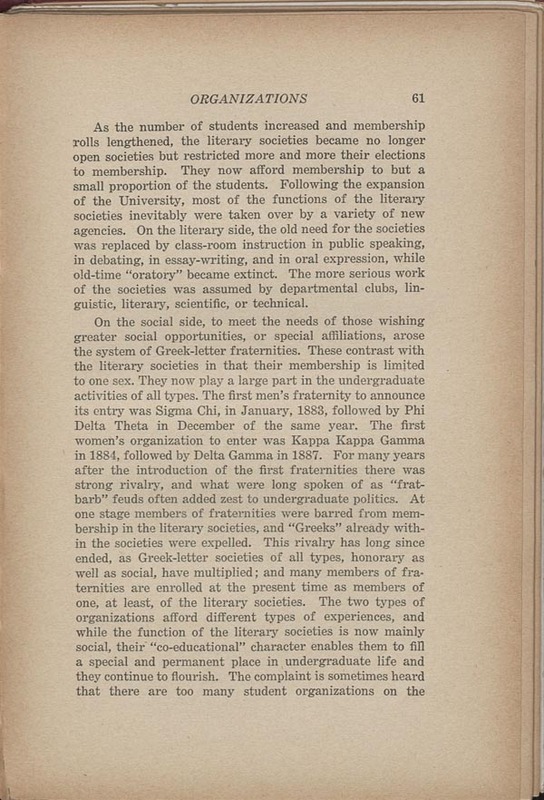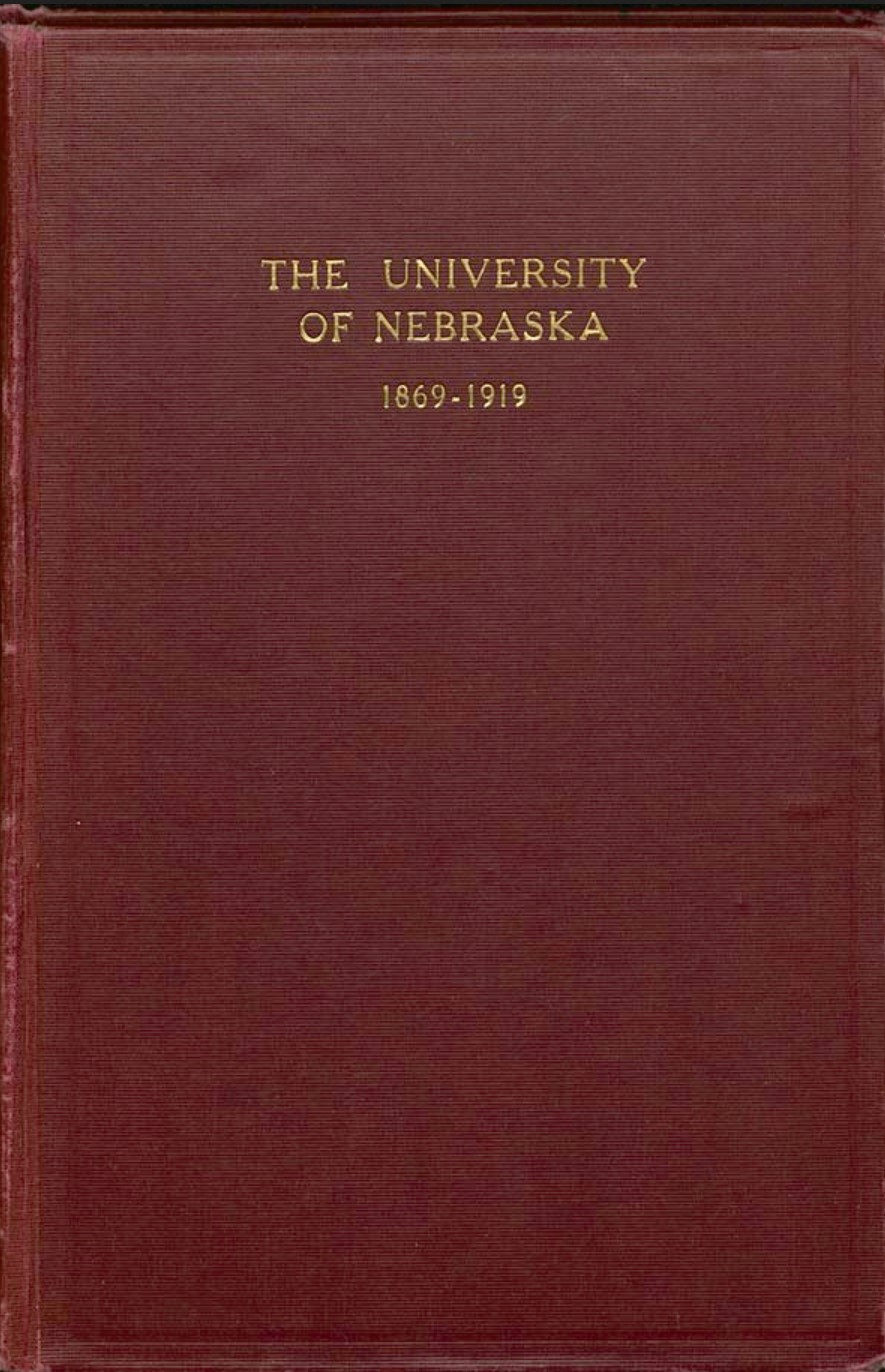065
Item
-
Title
-
065
-
Description
-
Semi-Centennial Anniversary Book: The University of Nebraska, 1869-1919
-
Transcription
-
As the number of students increased and membership rolls lengthened, the literary societies became no longer open societies but restricted more and more their elections to membership. They now afford membership to but a small proportion of the students. Following the expansion of the University, most of the functions of the literary societies inevitably were taken over by a variety of new agencies. On the literary side, the old need for the societies was replaced by class-room instruction in public speaking, in debating, in essay-writing, and in oral expression, while old-time "oratory" became extinct. The more serious work of the societies was assumed by departmental clubs, linguistic, literary, scientific, or technical.
On the social side, to meet the needs of those wishing greater social opportunities, or special affiliations, arose the system of Greek-letter fraternities. These contrast with the literary societies in that their membership is limited to one sex. They now play a large part the undergraduate activities of all types. The first men's fraternity to announce its entry was Sigma chi, in January, 1883, followed by Phi Delta Theta in December of the same year. The first women's organization to enter was Kappa Kappa Gamma in 1884, followed by Delta Gamma in 1887. For many years after the introduction of the first fraternities there was strong rivalry, and what were long spoken of as "frat-barb" feuds often added zest to undergraduate politics. At one stage members of fraternities were barred from membership in the literary societies, and "Greeks" already within the societies were expelled. This rivalry has long since ended, as Greek-letter societies of all types, honorary as well as social, have multiplied; and many members of fraternities are enrolled at the present time as members of one, at least, of the literary societies. The two types of organizations afford different types of experiences, and while the function of the literary societies is now mainly social, their "co-educational" character enables them to fill a special and permanent place in undergraduate life and they continue flourish. The complaint is sometimes heard that there are too many student organizations on the
-
Rights
-
To inquire about usage, please contact Archives & Special Collections, University of Nebraska-Lincoln Libraries. These images are for educational use only. Not all images are available for publication.



